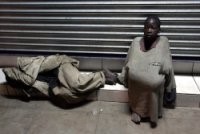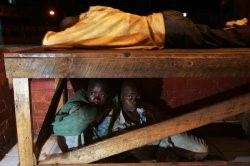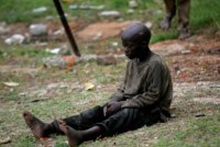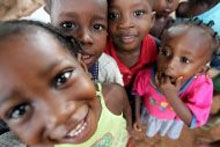Resource 2: Asking questions about feelings
![]() Background information / subject knowledge for teacher
Background information / subject knowledge for teacher
You need to be sensitive when asking questions about feelings. Children might not always want to talk about their feelings in public. You need to ask the kinds of questions that allow children to give answers they feel comfortable with.
One way to do this is to ask questions to the whole class instead of to individuals. Ask questions such as: ‘Who likes …’ and ‘Who doesn’t like …’ with pupils putting up their hands. If they see that they are part of a group, the children will feel less embarrassed about revealing their feelings.
You can do the same by brainstorming different questions (see Key Resource: Using mind maps and brainstorming to explore ideas [Tip: hold Ctrl and click a link to open it in a new tab. (Hide tip)] ). For example, ask: ‘What makes you scared?’ and then write all the pupils’ ideas down on the board very quickly. This way, you won’t make the individuals feel too exposed.
If you want them to talk more intimately about their feelings, organise them into pairs or groups to do similar exercises. They will probably find it easier to speak in a small group.
You can also use stories to explore sensitive ideas – this helps pupils to talk more freely as they do not feel they are talking about their own experiences.
You can make up your own stories to share with your pupils. Or you could use the story of Ghanaian street children below to stimulate discussion. Either copy the sheet – one for each group – or read from your copy to the whole class.
After they have heard the story taken from Street Children News, ask them how they feel about the children’s lives. Are they similar or different to their own lives? How would they feel about living like that? What would they like and dislike about this kind of life?
Street Children News: Ghanaian street children
‘Street’ children have been given this anonymous label because the ‘street’ is where they live their lives out: hustling, sleeping, working, eating. The street is their home and this is where their daily struggle is endured.

Currently in Africa there are a few national governments addressing the very real needs of these marginalised citizens; but there simply is not enough money to go around. It is up to grass-roots organisations and NGOs (non-governmental organisations) to reach out to these children and offer them a helping hand.

It gets cold at night in the winter and so street children sniff glue as a guard against the cold and to escape from their struggle to survive for a few short hours.
Quotes from the street
In 2003, Wendy Jones asked street children in Accra some simple questions and recorded what they said. Their lives may seem very different from our lives but by reading their replies we can see that they are people just like us, often with the same dreams and aspirations.
‘If you could go anywhere in the world, where would you go?’
‘My home town.’
‘If you had three wishes, what would you wish for?’
‘Shoes. One Shirt. Sneakers.’
‘What makes you happy?’
‘Clapping games.’
‘What makes you cry?’
:'When I am hungry.’
‘If you had three wishes, what would you wish for?’
‘A dress. Sandals. Eggs.’
‘What do you think about last thing at night before you go to sleep?’
‘I think about the next day. Because I think that evening has passed so I have to think about the next day. As for the night I have no place to go and I just sleep.’
‘What would you have if you could have anything?’
‘A necklace, a watch, a bed I can sleep in, a TV, a video tape – any tape, a chair.’
‘Tell me about your mother.’
‘She wants me to be somebody. Yet I am on the streets.’
‘What would you like to do in your future?’
‘In the future, if I'm rich – I know I will be rich – yes, I hope, I hope I will be rich, I will care for street children. Children with broken legs who can't work...’
‘What do you regret?’
‘I will say I regret being a street girl and I regret picking a boyfriend. And I regret having bad friends – those that don't give good advice and wish for your downfall.’
‘What’s your favourite thing?’
'I have a long black dress. I used to wear it and go anywhere. If I go to an exhibition or to visit some people I can wear it. I love my long dress. It's fitted with sleeves. It's black'
 |  |
Adapted from:http://streetchildafrica.org.uk (Accessed 2008)
Resource 1: Similarities and differences



